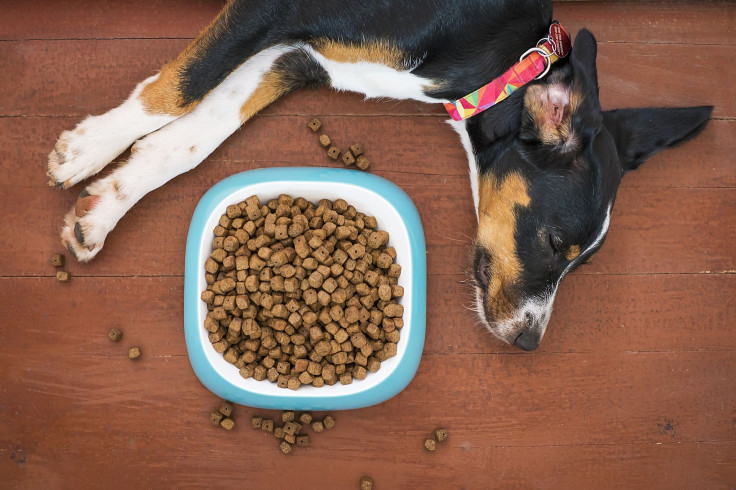Pet Food Recall: Purina Pulls Certain Dog Food Over Vitamin D Toxicity Concerns
KEY POINTS
- The recalled product may contain "elevated levels" of vitamin D
- Pet owners are being advised to stop feeding the product to their pets
- They should call their veterinarian if their pets show vitamin D toxicity symptoms
Nestle Purina PetCare Company is voluntarily recalling a certain Purina-branded dog food due to the risk of vitamin D toxicity.
The recalled product may contain elevated levels of vitamin D, according to the company announcement on the U.S. Food and Drug Administration (FDA) website. Although vitamin D is considered to be "essential" for dogs, helping them to regulate calcium and phosphorus, too much of it may lead to vitamin D toxicity.
This is because vitamin D is fat-soluble, which means that it isn't as quickly excreted in animals' urine if they get too much of it compared to water-soluble vitamins. Instead, the excess vitamin D gets stored in the liver and fat tissue. This may potentially lead to kidney failure and even death, the FDA explained.
As of the company announcement, there have been two "separate" reports of dogs reportedly presenting with signs of vitamin D toxicity after consuming the product. Such signs may include loss of appetite, increased thirst and urination, vomiting, weight loss or excessive drooling. The pets, fortunately, recovered once they stopped with the diet.
As such, pet owners who are in possession of an affected product are being advised to stop feeding it to their pet "immediately."
The recall affects Purina Pro Plan Veterinary Diets EL Elemental (PPVD EL) products in 8-pound (UPC code 38100 19190) and 20-pound (UPC code 38100 19192) bags. The first eight digits of the affected products' production code are the following: 2249 1082, 2250 1082, 2276 1082, 2277 1082, 2290 1082, 2360 1082 or 2361 1082.
These were sold across the U.S. "only" by prescription at veterinary clinics and retailers that were able to validate prescriptions as well as via Purina Vet Direct and Purina for Professionals.
"No other Purina pet care products are affected," the company noted.
Nestlé Purina Petcare Company Voluntarily Recalls Purina Pro Plan Veterinary Diets El Elemental Dry Dog Food in the U.S. Due to Potentially Elevated Vitamin D https://t.co/3WhV6P4DSj pic.twitter.com/KotZ4rY7Qe
— U.S. FDA Recalls (@FDArecalls) February 9, 2023
Pet owners should contact their veterinarian if their pets are displaying symptoms of vitamin D toxicity. They should also dispose of the recalled product in a container, in such a way that other animals and even wildlife won't be able to access it, the company said.
Those with questions about the recall may contact the company at 1-800-345-5678.
"We apologize to pet owners and veterinarians for any concerns or inconvenience this situation has caused," Purina noted. "As pet experts and pet owners ourselves, the health and well-being of pets is our top priority."
Apart from the consumption of pet food with elevated vitamin D levels, there are other common ways that pets tend to experience vitamin D toxicity. These include situations wherein the pets accidentally get access to pet owners' vitamin D supplements at home or if they accidentally ingest certain rodenticides (chemicals used to kill rodents) containing cholecalciferol — the chemical name for vitamin D3.

© Copyright IBTimes 2025. All rights reserved.





















